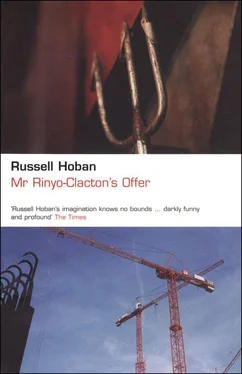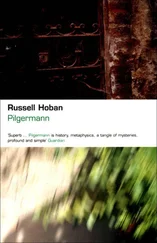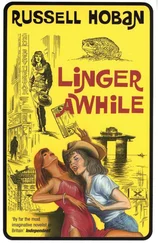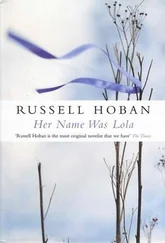The voice told us that we were approaching the Gare du Nord. People were getting their bags down from the racks and standing in the aisle. The terminal appeared outside the windows and we stepped out of the train, looking anxiously to right and left but seeing no Mr Rinyo-Clacton. I think it was only then that the full weirdness of my situation hit me with the realisation that Death is always waiting for any door to open at any time.
Ahead of us was a modern clock with a black face and yellow hands. The dial had yellow hour markers but no numbers. Some distance beyond it was an older clock with a white face and Roman numerals. The time was 12:28. I was thinking that clocks in railway stations are more momentous than the ones in airports but it seemed an unlucky thing to say.
‘Clocks in railway stations are more momentous than the ones in airports,’ said Serafina.
‘Yes, and here we’ve got one with a black face and one with a white face.’
‘The black face is for tunnel travellers; the white face is from a long time ago.’
I’d booked us into the Hotel Bastille Speria in the Rue de la Bastille where we’d stayed last time: one room, two beds, as specified by Serafina. We had no luggage but our rucksacks, so we took the Métro to Bastille and walked from there. The sky was grey and promising rain. We checked in, then took the Métro to Pére Lachaise.
It was raining when we came out into the street, scattered herds of umbrellas moving slowly or swiftly over the glistening pavements. We had lunch at a brasserie on the corner, then went to the florist next door where Serafina bought three long-stemmed roses and I bought a map of the cemetery. Then we made our way under our umbrella down the Boulevard de Ménilmontant to the entrance of the necropolis.
Once inside we walked steadily uphill on rain-freshened cobblestones and wet brown leaves, tombs on either side of us compounding silence and slow time and the presences of absence. Deaths of all kinds watched us pass: deaths by age and illness and violence; by accident or intention; by one’s own hand or someone else’s; in bed, on the street, on the field of honour or against a wall. Here and there we saw other hooded and umbrellaed pilgrims with maps, heading for Jim Morrison, Maria Callas, Héloïse and Abélard, and others of the many celebrities gathered here. The grey rainlight was like a bell-jar of quiet over all. There was no sign of our friend. ‘It’s so tranquil here,’ I said.
‘Well, all their troubles are behind them, aren’t they.’
Onward and upward we went, past angels and obelisks and yew trees, past the Avenue de la Chapelle and Avenue Transversale No.1. Victor Noir was in Division 92, Avenue Transversale No.2. Rowan trees diminished goldenly to vanishing points in both directions. There was a little huddle of visitors at the tomb on which were plastic-wrapped bouquets of irises and chrysanthemums, a pot of cyclamen, and one gorgeous long-stemmed pink rose emerging from the hat and lying across Victor’s burnished crotch. The huddle dispersed and we moved in for a closer view.
‘I don’t think I’ve ever seen a freshly killed statue before,’ said Serafina.
‘It’s a startler.’ Bronze Victor looked as if he’d been alive only a moment ago, his mouth still slightly open — handsome fellow with a moustache. How am I going to look when I’m dead? I wondered.
‘Looks as if he might have been a good dancer,’ said Serafina.
‘Aren’t you going to give him the roses?’
‘In a moment.’
A slender black woman wearing a sky-blue turban hesitantly approached the tomb. Under her umbrella and the vivid blue her face looked out with a delicately melancholy air. She was carrying a bouquet of red and yellow chrysanthemums.
‘I think she wants to be alone with Victor,’ said Serafina. We moved down the line a little way and she peeped round the corner of a tomb. ‘She’s put the flowers between his legs and she’s rubbing his boots,’ she reported. ‘Now she’s leaving.’
The woman’s departing figure grew small in the rowan-lined Avenue Transversale No.2. The rain was coming down a little harder, and we moved to the tomb next to Victor Noir and sheltered under its portico. ‘What now?’ I said. ‘Are you going to give Victor a rub and make a wish?’
‘Maybe I am, and I’d rather you didn’t watch me while I do it.’
‘Right. Here’s the umbrella.’
‘No, thanks.’
I guessed that she needed both hands free to get a grip on his boots which stuck up like handles and I hoped that Victor was as good against HIV as he was for pregnancy. I turned my back and waited two or three minutes until she tapped me on the shoulder. ‘He must be pretty efficacious,’ I said, ‘if women are still giving him flowers and a rub after all these years. I wonder how many husbands, lovers and babies he’s delivered.’
‘You used to know when to keep quiet, Jonathan. It was one of the nice things about you.’
‘Sorry. Just tell me, are we finished here?’
‘Yes.’
She took my arm; her body rubbed against mine as we walked and the pattering of the rain on the umbrella was a cosy sound but there was nothing said between as we made our way back to the Boulevard de Ménilmontant. Our return route from Division 92 was slightly different from the one we’d taken going there. Père Lachaise offered view after view of the shadowy grey houses and monuments of the dead gracefully framed by foreground trees and backed by shapely dark and pale recessions of yew, larch, rowan and chestnut. Fallen chestnuts lay smashed on the shining cobbles. From one of the tombs two bronze arms, as if breaking through the stone, reached up, the hands grasping each other and a wilted iris, ‘DIEU NOUS A SÉPARÉS; DIEU NOUS RÉUNIRA,’ said the chiselled words.
‘Where to now?’ said Serafina. ‘Pigalle?’
‘Right: Au Tonneau.’
The Métro is one of my favourite Paris things; it’s sleeker and shinier than the London Underground; the doors of the carriages open and shut in a snappier way; the whole system inspires confidence that things can be arrived at in an orderly manner.
Au Tonneau is just over the road from the Pigalle Métro station. I hadn’t realised, the first time I saw it, that its emptiness had been taken over by the Ciné Video which has its entrance next door. The barrel-face was even more desolate than the last time, stripped of its Harry Belafonte posters and whatever else had been pasted there. The blind barrel-face with its gaping Gothic mouth seemed a paradigm of everything — all the problems of my life and my self reduced to one simple image: an empty vessel, the wine all gone. And in front of the boarded-up doorway Mr Rinyo-Clacton, debonair in a belted mac, smiling at us from under his umbrella.
‘Look!’ I said. ‘There he is.’
‘I see him,’ said Serafina. ‘What does he want, for Christ’s sake?’
‘He wants us to see him, he’s teasing us. Wait here for me.’
‘What are you going to do?’
‘Just give him the attention he craves. Maybe he’ll leave us alone after that.’ I crossed the road to where he stood.
I had my knife in my pocket and I felt reasonably comfortable.
‘Bon jour, Jonny,’ he said. ‘Ca va?’
‘Can’t complain. Are you enjoying Paris?’
‘All the more for seeing you and the lovely Serafina. Are you sleeping together again or have I put her off lesser lovers?’
‘If you’re serious about being a great lover you should do something about your breath.’
‘You say that but you don’t mean it; I know what you like. My breath didn’t bother Serafina either. I tell you, that girl is really something — even in the heat of passion with her legs wrapped around you she’s somewhere inside herself that’s cool and far away. Inspired me to heroic efforts which were well and truly appreciated. Maybe we can make it a threesome tonight, eh?’
Читать дальше












